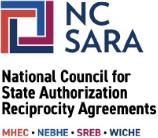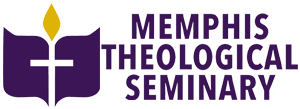Accreditations
Accreditations and Authorizations
Memphis Theological Seminary is accredited by the Commission on Accrediting of the Association of Theological Schools in the United States and Canada (ATS), and institutionally by the Commission on Colleges of the Southern Association of Colleges and Schools (SACSCOC). MTS is authorized by the Tennessee Higher Education Commission (THEC) and the National Council for State Authorization Reciprocity Agreements (NC-SARA).
The following degree programs are approved:
Master of Divinity (MDiv)
Master of Arts in Christian Ministry (MACM)
Doctor of Ministry (DMin)
Memphis Theological Seminary is hosting a comprehensive evaluation visit for reaffirmation of accreditation by the ATS Commission on Accrediting on November 10-13, 2025. The purpose of this visit is to verify that the school meets all applicable Commission Standards of Accreditation. Comments regarding how well the school meets those standards and/or generally demonstrates educational quality may be sent to accrediting@ats.edu at least two weeks before the visit. Comments may also or instead be sent in writing to President Hill at jhill@memphisseminary.edu. All comments will be shared with the onsite evaluation committee.
Your Title Goes Here
Your content goes here. Edit or remove this text inline or in the module Content settings. You can also style every aspect of this content in the module Design settings and even apply custom CSS to this text in the module Advanced settings.
ATS Accreditation
Master of Divinity
Master of Arts in Christian Ministry
Doctor of Ministry
10 Summit Park Drive
Pittsburgh, PA 15275 USA
Telephone: 412-788-6505
Fax: 412-788-6510
Website: www.ats.edu
SACSCOC Accreditation
Memphis Theological Seminary is accredited by the Southern Association of Colleges and Schools Commission on Colleges (SACSCOC) to award master’s and doctorate degrees. Memphis Theological Seminary also may offer credentials such as certificates and diplomas at approved degree levels. Questions about the accreditation of Memphis Theological Seminary may be directed in writing to the Southern Association of Colleges and Schools Commission on Colleges at 1866 Southern Lane, Decatur, GA 30033-4097, by calling (404) 679-4500, or by using information available on SACSCOC’s website ( www.sacscoc.org )
THEC Authorization
Tennessee Higher Education Commission
312 Rosa L Parks Blvd, 9th Floor
Nashville, TN 37243, USA
Telephone: 615-741-3605
Website: https://www.tn.gov/thec
NC-SARA Authorization

National Council for State Authorization Reciprocity Agreements
3005 Center Green Drive
Boulder, CO 80301, USA
Telephone: 720-680-1600
Website: https://nc-sara.org
Memphis Theological Seminary has been approved to participate in the National Council for State Authorization Reciprocity Agreements. While MTS does not offer any degree in its entirety via distance education, the institution does offer distance education courses, whether in synchronous or asynchronous format.
Closed Toggles
Your content goes here. Edit or remove this text inline or in the module Content settings. You can also style every aspect of this content in the module Design settings and even apply custom CSS to this text in the module Advanced settings.
United Methodist Senate Approval
Memphis Theological Seminary is Senate-approved and operates as one of the Non-United Methodist Affiliated Schools of Theology. While not officially affiliated with the United Methodist Church, MTS is approved by the University Senate to educate United Methodist students seeking ordination, offering theological education that meets the denomination’s academic and formation standards.
Statement of Educational Effectiveness
Memphis Theological Seminary is committed to educating and sustaining men and women for ordained and lay Christian ministry in the church and the world through shaping and inspiring lives devoted to scholarship, piety, and justice. To that end, Memphis Theological Seminary regularly evaluates its academic programs in light of these goals. Further, ATS and SACSCOC call for all accredited schools to post public statements of educational effectiveness. To do so, Memphis Theological Seminary has assembled data from faculty demographics, as well as student demographics, graduation and placement rates, default rates from our graduates who participate in the Federal Student Loan Program, and various student surveys regarding satisfaction with Memphis Theological Seminary’s programs and the post-graduation experience.
As a graduate professional school, Memphis Theological Seminary challenges students with a rigorous course of study that is responsive to the expectations of various denominational bodies and non-profit/community organizations for persons in ministry. Memphis Theological Seminary provides support in advising and student formation to support students in their progress toward their degree.
Faculty Demographics and Diversity
A key component of the Memphis Theological Seminary educational experience is the diversity of our community of faith and learning. Regarding its faculty, the seminary carries a goal of diversity in gender (approximately 50/50 female-male), race-ethnicity (at least 33% non-Caucasian), and denominational background (at least 4 denominations, if not more).
As of Fall 2024, MTS’s faculty is made up of 8 full-time teachers and scholars, 4 women and 4 men. Just over one-third of Memphis Theological Seminary’s faculty is African American, and among the faculty are a variety of denominational traditions, including Christian Methodist Episcopal, United Methodist, Baptist, and Presbyterian Church USA.
Student Demographics and Diversity
As of Fall 2024, 54.5% are female and 45.5% of our students are male. We are racially-ethnically diverse, as 68.9% are African American, 26.3% Caucasian, 2.4% Asian, and 2.4% Hispanic/other. Denominationally, we are represented by 21% in the Methodist tradition (UMC, CME, AME), 36.6% Baptist (American, Cooperative, Full Gospel, General, Missionary, National, other), 12.6% Cumberland Presbyterian, 15.6% non-denominational, and the remaining 14.2% are an array of other denominations and traditions (e.g., Church of God in Christ, Disciples of Christ, Presbyterian Church USA, Pentecostal, Seventh Day Adventist, Episcopal).
Retention Rate
Data is provided for 2 years, or 4 semesters.
| Time Period | Retention Rate |
| Spring 2023 to Fall 2023 | 87.2% |
| Fall 2023 to Spring 2024 | 95.7% |
| Spring 2024 to Fall 2024 | 86.4% |
| Fall 2024 to Spring 2025 | 91.2% |
Graduation Rate
The graduation rate for Memphis Theological Seminary (MTS) listed in the chart below. As a threshold of acceptability, the seminary’s rate has been compared with the Association of Theological Schools (ATS) institutional average for each year listed. ATS has a total of 281 member institutions.
Graduation rates are reported based on time periods defined by the ATS annual reporting requirements.
MDiv graduation rates refer to those who graduated within a 6-year period.
MACM graduation rates refer to those who graduated within a 4-year period.
DMin graduation rates refer to those who graduated within a 6-year period.
Data is provided for 3 years.
|
Degree |
MTS 2022 |
ATS 2022 |
MTS 2023 |
ATS 2023 |
MTS 2024 |
ATS 2024 |
|
Master of Divinity |
84% |
61% |
47% |
56% |
43% |
57% |
|
Master of Arts in Christian Ministry |
79% |
53% |
40% |
50% |
0% |
48% |
|
Doctor of Ministry |
83% |
50% |
61% |
53% |
86% |
50% |
Placement Rate
The placement rate for Memphis Theological Seminary (MTS) listed in the chart below has been compared with the Association of Theological Schools (ATS) institutional average for each year listed. A placement rate consists of those graduates who were placed vocationally (in their field), non-vocationally (outside their field), or continuing with further studies. ATS has a total of 281 member institutions.
Data is provided for 3 years.
|
|
MTS 2022 |
ATS 2022 |
MTS 2023 |
ATS 2023 |
MTS 2024 |
ATS 2024 |
|
Placement Rate |
79% |
91% |
100% |
90% |
100% |
91% |
Loan Default and Debt Management
Memphis Theological Seminary’s default rate in the Federal Loan program is low. Our goal is to keep it under 15%. Further, our program of Financial Leadership for Ministry provides financial literacy training and counseling for students and clergy and lay people in the mid-South. The low default rate can be seen as one indicator that Memphis Theological Seminary graduates attain gainful employment post-graduation.
Data is provided for 3 years.
Loan Default & Debt Management
| Year Published | Rate Type | Rate | For Year |
| 2023 | 3-Year Official | 0.0 | 2020 |
| 2024 | 3-Year Official | 0.0 | 2021 |
| 2025 | 3-Year Official | 0.0 | 2022 |
Memphis Theological Seminary has participated in the Lily Endowment Debt Study and has received grants to develop debt-reduction programs and education for seminarians. The financial aid coordinator for Memphis Theological Seminary provides student support in finding and applying for scholarships, and in addressing loan debt.
Student Satisfaction
Annually, Memphis Theological Seminary participates in a survey of graduating students administered by ATS. Below you will find a link to the results of the 2023-2024 survey.
Filing Complaints with State Authorization or Accreditation Bodies
As required by the Tennessee Higher Education Commission (THEC), if a student is unable to resolve any grievance at the institutional level, the student may contact the Tennessee Higher Education Commission, 404 James Robertson Pkwy #1900, Nashville, TN 37219 or at 615-741-5293. Complaints can be submitted at THEC’s website. THEC also receives complaints related to distance education delivery of courses as it relates to the State Authorization Reciprocity Agreement (SARA).
If a student is not satisfied with the response to a grievance and believes that the Seminary is out of compliance with the criteria, the student may file a complaint in writing with the Association of Theological Schools in the United States and Canada, 10 Summit Park Drive, Pittsburgh, PA 15275-1103. The complaint policy can be reviewed at ATS’s website.
A student may also file a complaint with the Seminary’s institutional accrediting agency, SACSCOC. Information can be found at their website. The Electronic Complaint Form can be completed online or a hard copy can be requested and mailed to President, Southern Association of Colleges and Schools Commission on Colleges, 1866 Southern Lane, Decatur, GA 30033-4097.
